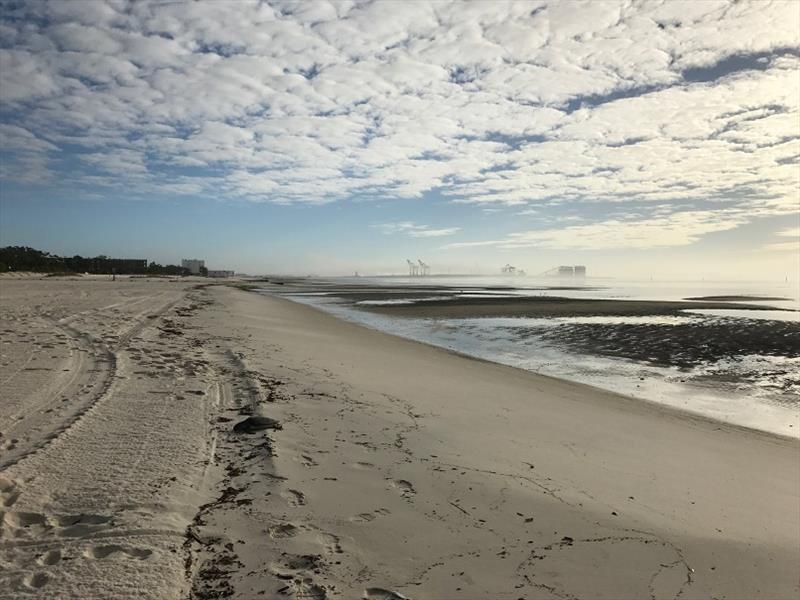
NOAA Fisheries reminds public, watch for and report sea turtles in trouble
by NOAA Fisheries 31 Mar 2018 15:11 UTC

Stranded green sea turtle © NOAA Fisheries / Jaymie Reneker
If you are walking on Mississippi beaches, visiting the barrier islands, or boating, here is a great way that you can help save sea turtles. Please watch for and report stranded sea turtles.
A stranded sea turtle is one that is found washed ashore or floating, alive or dead. If it is alive, it is generally in a weakened condition. Stranded sea turtles can be found floating in bays, passes, and the Gulf of Mexico, or on beaches and shorelines. They can be located year-round but are found most often in the spring and early summer.
It is important that you report stranded sea turtles so that biologists can document them. Live, stranded sea turtles will be taken to local rehabilitation facilities to receive care. Dead, stranded sea turtles will sometimes be salvaged for necropsy (non-human autopsy) and research. When they are not, they will be removed from the beachfront or marked so they are not documented again.
If you see a sick, injured, or dead sea turtle, please call the Mississippi Sea Turtle Stranding and Salvage Network Hotline at 228-369-4796 and trained staff will determine how best to respond. For your safety and that of the sea turtle, please do not attempt to move or pick up the animal. Please be prepared to provide an address or the exact location of the stranded sea turtle, proximity to the surf, if it is alive or dead, and approximate size. You may also be asked to photograph the animal and text photos to the Stranding Hotline.
Your assistance is greatly appreciated and could make all the difference in protecting these threatened and endangered sea turtles.